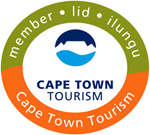|
Newsletter / Blog
2011-06-17
Conservation - African Penguin
The African Penguin - Spheniscus demersus - also known as the Jackass Penguin or the Black-footed Penguin is found on the south-western coast of Africa, living in colonies on 24 islands and 3 mainland colonies, between Namibia and Algoa Bay, Port Elizabeth, South Africa.
In the 1900s, penguins were threatened
by egg collection and guano scraping at their breeding colonies. These
activities were stopped in the 1960s but the penguin populations have
continued to decrease. Now penguins are threatened by a myriad of
sources from predation by seals (and possibly sharks) to the potential
for a catastrophic oil spill to a lack of food. The impact of these
threats will only be exacerbated as the penguin population decreases
further.
The lack of suitable food is the threat
that is the most controversial. Penguins eat mainly sardines and
anchovies, which are also the target of the commercial purse-seine
fishing industry.
The species' conservation status was downgraded from Vulnerable to
Endangered due to the staggering 80% decrease in their population over
the last 50 years. When the first official population census was
conducted in 1956, there were about 141 000 pairs. Fifty years later,
the population is at only 25 000 pairs. These charismatic birds breed
only at a few islands along the coast of South Africa and Namibia and
their numbers are dwindling.
In June 2009, through BirdLife International's - " Preventing Extinctions" programme, a Species Champion was found for the African Penguin, the Charl van der Merwe Trust.
What BirdLife South Africa is doing: -
Significant funding has been received from the
Species Champion to ensure that critical interventions can be made. The
projects we are involved with work towards our major goal: incorporating the
needs of penguins (and other predators) into fishery management. This is known
as the Ecosystem Approach to Fisheries (EAF).
We are working on the following projects:
-
Policy
level: Fishing quotas are set without taking the distribution of fish into
account and this may affect the availability of fish for penguins. We are
working with government and fisheries to change the way the fishing quota
is set.
-
Island
closures project: Funding University
of Cape Town
post-doctoral student, Dr. Lorien Pichegru to examine the effects of banning
fishing around penguin breeding islands. Preliminary results show that
banning fishing 20km around a colony means that penguins don't have to
swim as far as before to find food.
-
Transponder
project: Micro-chipping penguins on Robben Island
to gather data on survival rates and the effects of flipper bands on the
survival of the penguins.
Christina Moseley is the project officer in charge of co-ordinating these projects
and works closely with the head of the Seabird Division, Dr Ross Wanless. In addition to the work
on African Penguins, Ross is responsible for working with the BirdLife Africa
Partnership Secretariat in Nairobi,
coordinating all seabird conservation matters for the continent.
| 

